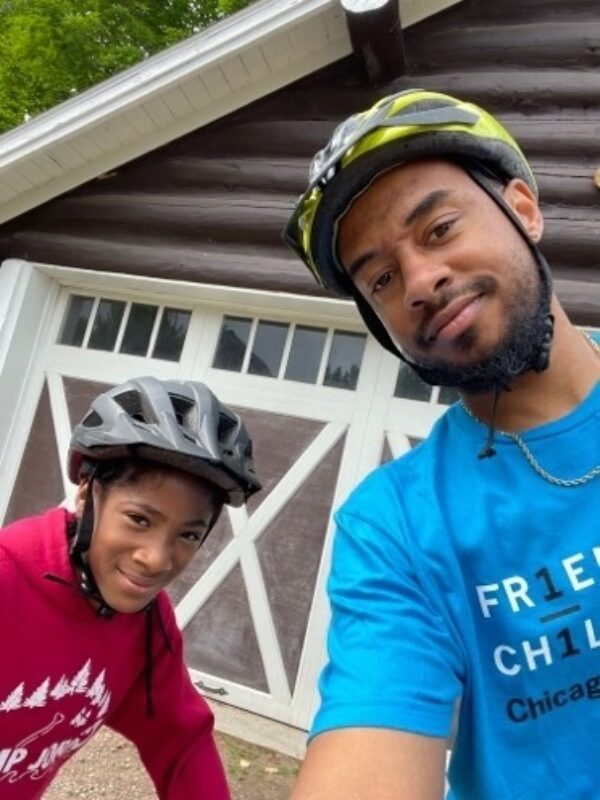
August 06, 2025
Letter from a Professional Mentor About Access
Hi, my name is Jonathan James and I have been a Professional Mentor at Friends-Chicago for over three years. As our program grows, so do the opportunities we create for our youth. But as we’ve created opportunities for our youth, I’ve learned that access is not enough without the appropriate support coupled with it.
This summer, as a result of a generous donor, 14 of our youth went to sleep-away camp in rural Wisconsin, and two other Professional Mentors and I were there to help the kids engage in camp life. For many of our kids, it was their first time fully in nature and even their first time leaving the city. It was beautiful to see them connect—with the outdoors and with themselves. It was also hard. Being away from family, navigating unfamiliar group dynamics, and sitting in an unfamiliar environment—it all brought up deep emotions for our kids, and for me too.
The expectation is that kids will come to camp able to self-regulate, adapt, work well in groups, and follow directions. While these skills can often be taken for granted, they are also exactly the skills our kids struggle with due to the trauma and instability they have faced. Without someone by their side who understands them and who shows up for them with patience, consistency, and kindness, how can they be expected to succeed?
The camp is responsible for providing a fun and educational experience for all the campers in attendance, and, at the same time, the camp counselors are not always equipped to provide the depth of individualized attention each of our kids need.
This is where our work as Professional Mentors became critical to supporting our kids as they learn to adapt and to thrive.

When some of our youth struggled to pick activities from the camp booklet due to literacy barriers, I helped them understand their options and choose the best fit for them. When many of our youth felt overwhelmed, I’d pull them aside for individualized attention to validate their feelings and help them regulate. As staff we provided our youth with care packages, bought them extra supplies, and made sure they participated in every activity they could, so they had the best camp experience.
One youth, Chris*, struggled significantly with transitions between activities and the feelings of being an outsider. I made sure to be there to prepare him 15-minutes before the change happened. I spent a lot of time giving him 1-0n-1 support, validating his feelings, and encouraging him to make connections with other kids. Eventually Chris even made a friend.
I want our Black and Brown youth to be in spaces like this—peaceful, structured, beautiful. But the truth is even though summer camp is “for everybody,” our kids stood out and needed to adjust just to belong. They are expected to know how to act, how to move, how to be, just to exist.
I left camp feeling full and at the same time frustrated. I felt full because our kids were there. They were seen, they were laughing, and they were learning. But I also felt frustrated because our kids struggled the most. And in the moment, it felt like it was so hard to give them the same opportunities as the other campers.
But then I caught myself. Our kids are allowed to feel what they feel. My job is to show up for them in whatever shape that takes in the moment.
We want better for our kids, and we fight hard to create access. Sometimes being the bridge of support feels lonely and heavy. But this is exactly the level of support we need to give to make a real difference for our kids, and this is why I am a Professional Mentor.
We are here. And we’ll keep showing up. Even when it’s hard. Even when it’s messy. Because our kids are worth it.
Thank you for showing up with us,
Jonathan James